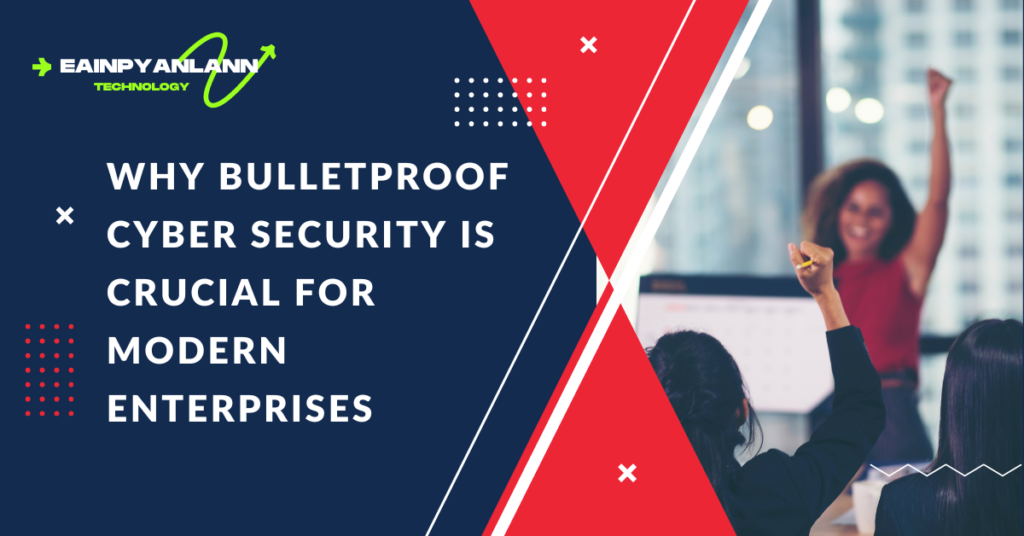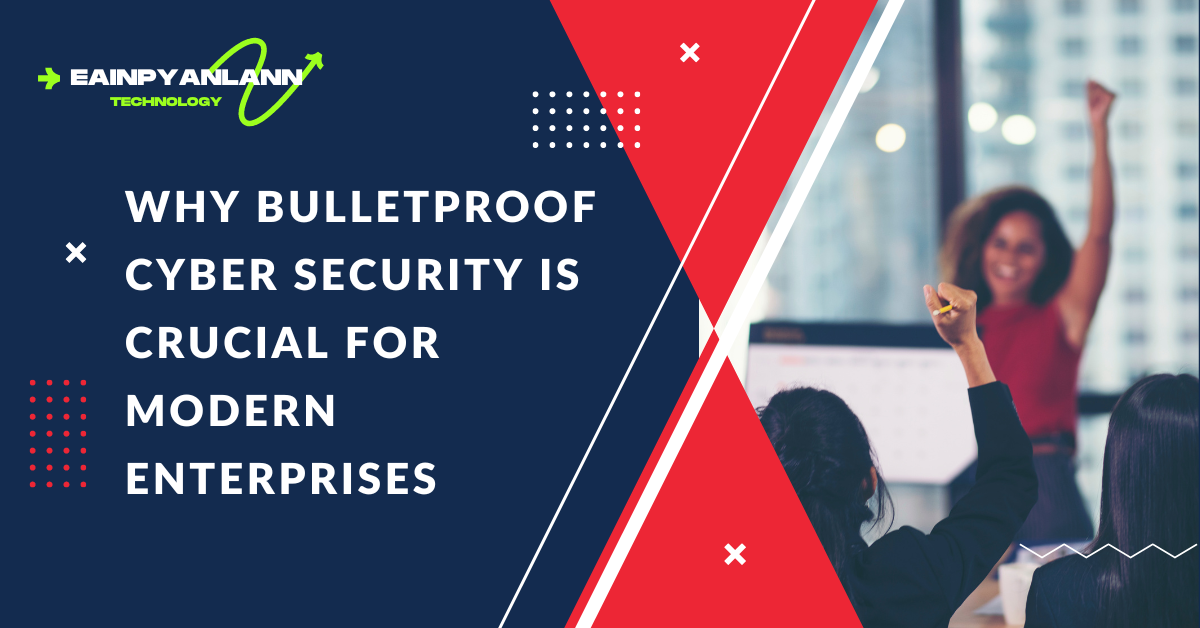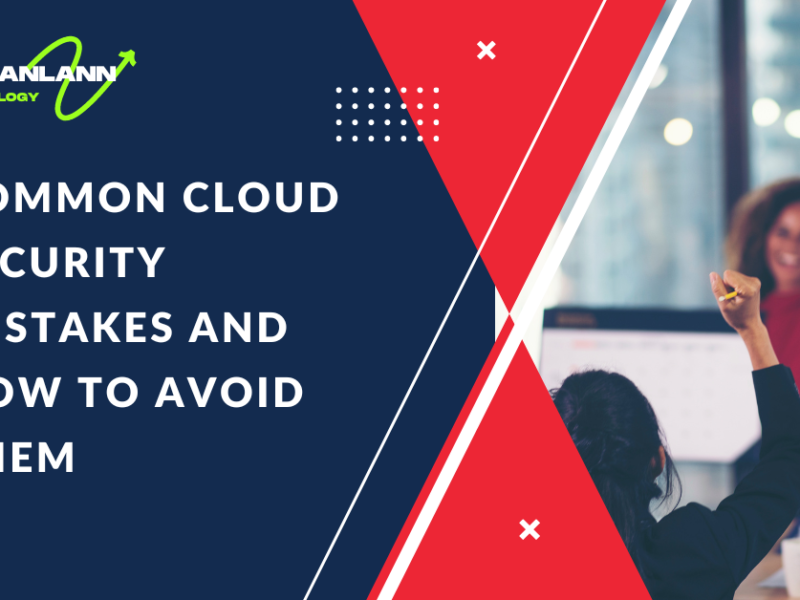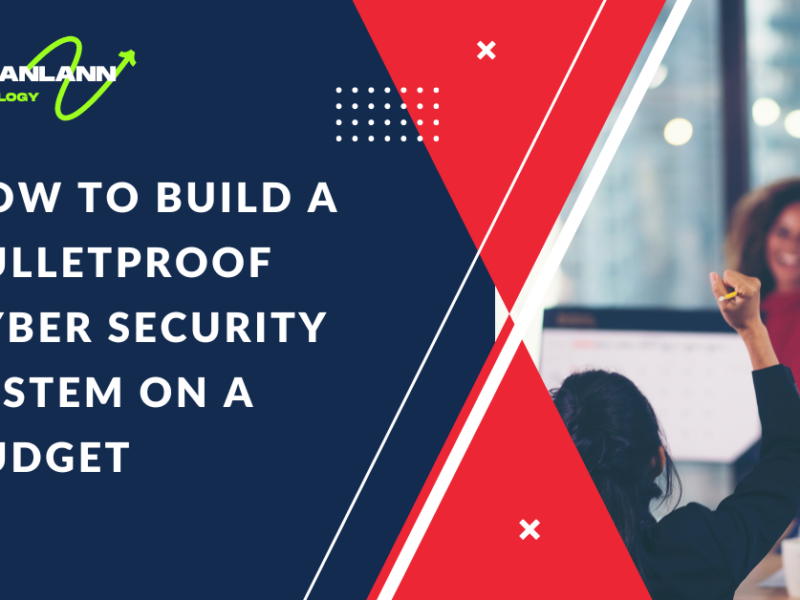In today’s hyper-connected world, where digital interactions form the backbone of almost every business operation, cybersecurity has evolved from a technical concern to a critical business priority. Enterprises, regardless of their size or industry, are increasingly relying on digital technologies to drive growth, enhance efficiency, and foster innovation. However, this digital dependence also exposes them to a myriad of cyber threats, making bulletproof cyber security an indispensable aspect of modern business strategy.

Here’s why bulletproof cyber security is crucial for modern enterprises:
1. Protection Against Evolving Threats
Cyber threats are not only becoming more frequent but also more sophisticated. From ransomware and phishing to advanced persistent threats (APTs) and zero-day exploits, the range of potential attacks is vast. A bulletproof cyber security system is crucial for protecting against these evolving threats. By implementing robust defenses, enterprises can safeguard their sensitive data, intellectual property, and business operations from being compromised.
2. Safeguarding Sensitive Data
Enterprises handle vast amounts of sensitive data, including customer information, financial records, and proprietary business data. A breach of this information can lead to severe consequences, including financial loss, legal repercussions, and damage to the company’s reputation. Bulletproof cyber security ensures that sensitive data is protected through encryption, access controls, and regular monitoring, reducing the risk of data breaches.
3. Maintaining Customer Trust
In an era where data breaches make headlines regularly, customers are increasingly concerned about the security of their personal information. Enterprises that fail to protect this data risk losing customer trust, which can be difficult to rebuild. A bulletproof cyber security approach demonstrates to customers that the enterprise is committed to protecting their data, thereby fostering trust and loyalty.
4. Compliance with Regulations
Many industries are subject to strict regulations regarding data protection and privacy, such as the General Data Protection Regulation (GDPR) in Europe or the Health Insurance Portability and Accountability Act (HIPAA) in the United States. Non-compliance with these regulations can result in hefty fines and legal consequences. Bulletproof cyber security helps enterprises meet these regulatory requirements by ensuring that all necessary security measures are in place.
5. Preventing Financial Loss
The financial impact of a cyberattack can be devastating. According to studies, the average cost of a data breach can run into millions of dollars, accounting for lost revenue, recovery costs, and fines. Moreover, the downtime caused by an attack can disrupt business operations, leading to further financial losses. By investing in bulletproof cyber security, enterprises can prevent these costly incidents and protect their bottom line.
6. Ensuring Business Continuity
Cyberattacks can cause significant disruptions to business operations, especially if critical systems are compromised. For example, a ransomware attack that encrypts an enterprise’s data can bring operations to a halt until the ransom is paid or the data is recovered. Bulletproof cyber security includes strategies such as regular data backups, disaster recovery plans, and continuous monitoring, which are essential for ensuring business continuity even in the face of an attack.
7. Protecting Intellectual Property
For many enterprises, intellectual property (IP) is their most valuable asset. Whether it’s proprietary technology, trade secrets, or innovative products, protecting this IP from cyber threats is crucial for maintaining a competitive edge. Bulletproof cyber security safeguards intellectual property by preventing unauthorized access and ensuring that sensitive information is not leaked or stolen.
8. Mitigating the Risk of Insider Threats
While external cyber threats are often the focus of security efforts, insider threats—whether malicious or accidental—can be just as damaging. Employees, contractors, or partners with access to sensitive information can pose a significant risk if proper controls are not in place. Bulletproof cyber security involves implementing strict access controls, monitoring user activity, and educating employees about security best practices to mitigate the risk of insider threats.
9. Enhancing Reputation and Brand Image
In today’s digital age, an enterprise’s reputation is closely tied to its ability to protect customer data and maintain a secure online presence. A high-profile data breach can lead to negative publicity, loss of customers, and a tarnished brand image. On the other hand, enterprises that are known for their strong security practices can differentiate themselves from competitors and build a positive reputation. Bulletproof cyber security is therefore crucial for enhancing and maintaining a strong brand image.
10. Supporting Innovation and Growth
As enterprises innovate and expand their digital offerings, they often introduce new vulnerabilities that can be exploited by cyber attackers. Whether it’s the launch of a new app, the adoption of cloud services, or the implementation of IoT devices, each innovation comes with its own set of security challenges. Bulletproof cyber security ensures that these innovations can be pursued safely, allowing enterprises to grow and innovate without compromising security.
11. Responding to the Increasing Frequency of Cyberattacks
The frequency of cyberattacks has been steadily rising, with businesses of all sizes facing an increasing number of threats. A bulletproof cyber security system is designed to detect and respond to these threats in real time, minimizing the potential damage. This proactive approach is essential in today’s environment, where the question is not if an enterprise will be targeted, but when.
12. Building a Security-First Culture
A bulletproof cyber security strategy goes beyond technology—it involves building a security-first culture within the organization. This means educating employees about the importance of cybersecurity, implementing policies that prioritize security, and ensuring that security considerations are integrated into every aspect of the business. By fostering a culture of security, enterprises can reduce the risk of human error and improve their overall security posture.
13. Leveraging Advanced Security Technologies
Modern cyber threats require modern solutions. Bulletproof cyber security involves leveraging advanced technologies such as artificial intelligence (AI), machine learning (ML), and blockchain to enhance security measures. For example, AI and ML can be used to detect unusual patterns of behavior that may indicate a cyber threat, while blockchain can provide a secure and transparent way to manage data.
14. Adapting to a Remote and Hybrid Work Environment
The shift to remote and hybrid work has introduced new security challenges for enterprises. Employees accessing company data from home networks or personal devices can create vulnerabilities that attackers can exploit. Bulletproof cyber security involves adapting security measures to protect against these new threats, such as implementing secure remote access solutions, using VPNs, and ensuring that employees follow best practices for cybersecurity.
15. Meeting Customer Expectations
Today’s customers expect the enterprises they interact with to protect their personal information and maintain a secure online presence. In an increasingly competitive market, meeting these expectations can be a key differentiator. Bulletproof cyber security helps enterprises meet and exceed these expectations, providing customers with the confidence that their data is safe.
16. Long-Term Sustainability
Finally, bulletproof cyber security is crucial for the long-term sustainability of an enterprise. Cybersecurity is not just a one-time investment but an ongoing commitment. Enterprises that prioritize security are better positioned to adapt to new threats, comply with changing regulations, and maintain customer trust over the long term. In this way, bulletproof cyber security is not just about protecting against threats today but ensuring the enterprise’s success and sustainability in the future.
Conclusion
In conclusion, bulletproof cyber security is not just a technical requirement but a business imperative for modern enterprises. As cyber threats continue to evolve and increase in frequency, the need for robust, comprehensive security measures has never been greater. By investing in bulletproof cyber security, enterprises can protect their assets, maintain customer trust, ensure compliance, and position themselves for long-term success in an increasingly digital world.




Thanks a lot.
Thanks
😘😘😘
Good evening
Good night 💕